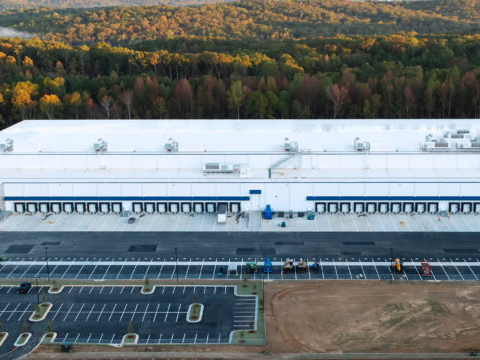Inland Western Buys San Antonio Retail Center for $92M in JV with RioCan
Inland Western Retail Real Estate Trust Inc. and joint venture partner RioCan Real Estate Investment Trust continue their Texas buying binge with the acquisition of Alamo Ranch, a 469,000-square-foot shopping center in San Antonio, for $92 million.
December 14, 2011
By Barbra Murray, Contributing Editor
Inland Western Retail Real Estate Trust Inc. and joint venture partner RioCan Real Estate Investment Trust continue their Texas buying binge with the acquisition of Alamo Ranch, a 469,000-square-foot shopping center in San Antonio. The 20/80 partnership, with Inland Western claiming the 20 percent interest, purchased the unencumbered Class A asset for $92.2 million.
Alamo Ranch debuted on its 61-acre site in 2008 and today, the retail destination is 88 percent occupied and anchored by a bevy of national retailers including Best Buy, Dick’s Sporting Goods, Marshalls, OfficeMax, PetSmart, and Ross Dress for Less. The super-regional power center is also home to three shadow anchors. As Inland Western’s chief investment officer Shane Garrison noted, the acquisition dovetails with the company’s strategy of enhancing its portfolio with premier properties in high-growth metropolitan areas.
Alamo Ranch marks Inland Western and RioCan’s fifth acquisition in Texas this year. In October, the joint venture added the fourth property to the portfolio with the $97.6 million purchase of 1890 Ranch, a 487,000-square-foot shopping center 20 miles north of Austin in Cedar Park, Tex.
The team’s fondness for the Lone Star State is not newfound. In mid-2010, the joint venture announced plans to buy a 1.1 million-square-foot portfolio consisting of eight retail assets in the Dallas-Fort Worth, Houston and Austin areas for $173 million.
More investors are likely to turn an eye toward Texas in 2012. The fundamentals are just right. “Texas leads the nation in job and population growth,” Tom Salanty, an executive director with commercial real estate services firm Cushman & Wakefield, noted in a third-quarter report. “With our low cost of living and no state income tax, the Texas consumer not only has a job, but more importantly has more disposable income. Expect lower vacancy and higher rent growth relative to other major metro markets.”






